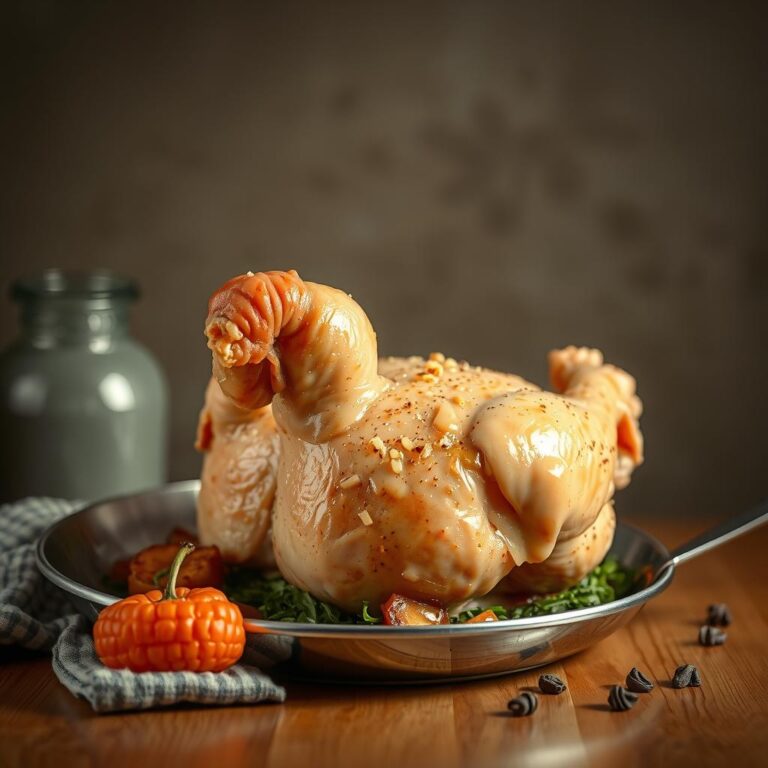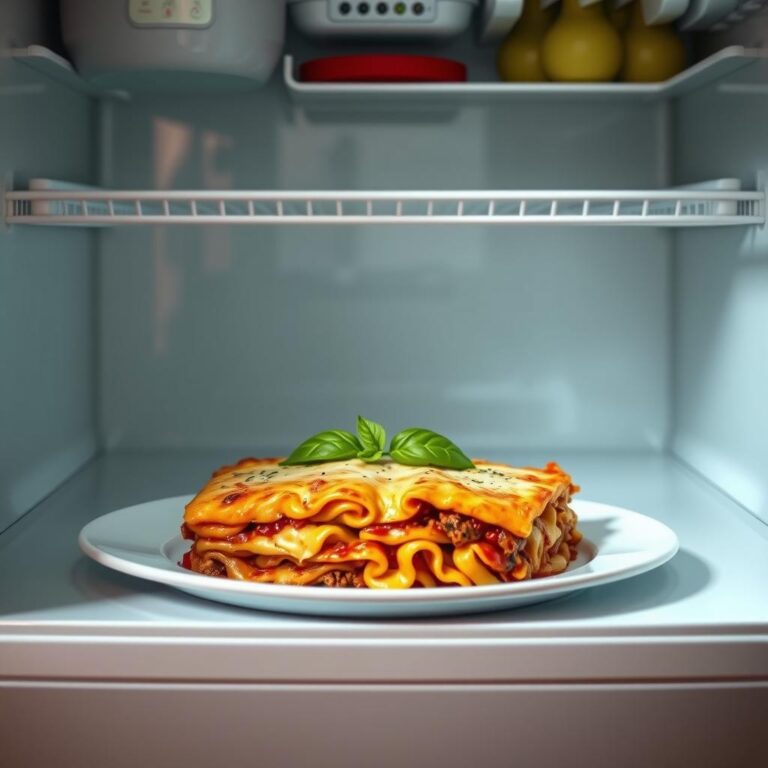Can you freeze cooked pot roast? That's probably what you're asking yourself after making a huge batch, or maybe you've got leftovers you don't want to waste.
Freezing cooked pot roast is totally doable, and I'm going to break down exactly how to do it right.
Preserving Your Pot Roast: A Deep Dive into Freezing
Let's face it, nobody wants to toss out perfectly good pot roast, especially after spending time and effort slow-cooking it to perfection. So, can you freeze cooked pot roast? Absolutely, and there are ways to maximize its flavor and texture even after thawing. Understanding the nuances of freezing this comfort food staple is key to enjoying it later.
Why Freeze Pot Roast Anyway?
- Leftovers: You made a massive pot roast, enough to feed an army (or a very hungry family), and now you're swimming in leftovers. Freezing is the obvious solution.
- Meal Prep: Cooking a big batch of pot roast and freezing individual portions makes for super easy and quick meals down the road.
- Saving Money: Don't let that delicious, slow-cooked beef go to waste! Freezing extends its shelf life and prevents food waste, saving you money in the long run.
- Unexpected Plans: Life happens. If your plans change and you can't eat the pot roast when you intended, freezing buys you time.
The Key Question: Does Freezing Affect Pot Roast Quality?
Yeah, freezing can affect the quality of your pot roast, but not significantly if done correctly. The main things to consider are texture and moisture. Proper freezing and thawing techniques minimize any negative impact, so you can still enjoy a tasty meal.
Factors Affecting Pot Roast Quality After Freezing:
- Freezing Speed: Slow freezing can create larger ice crystals that damage the meat's cell structure, leading to a mushier texture.
- Packaging: Improper packaging can lead to freezer burn, which dries out the pot roast and affects its flavor.
- Thawing Method: Thawing too quickly can also impact texture.
- Ingredients: Some vegetables in the pot roast might become softer after freezing and thawing.
Essential Steps Before You Freeze Your Cooked Pot Roast
Before you even think about tossing your pot roast in the freezer, there are a few critical steps you need to take. These steps are all about preserving the flavor and texture of your pot roast for when you're ready to enjoy it again.
Cool It Down (The Right Way)
Never, ever put hot pot roast directly into the freezer.
- Why? Putting hot food in the freezer raises the temperature inside, potentially thawing other items and creating an environment for bacteria to grow. Plus, it can affect the overall freezing process.
- How to Cool: Let the pot roast cool down at room temperature for no more than two hours. Then, transfer it to the refrigerator to cool completely. This two-step process prevents bacterial growth while preparing it for freezing.
Separate the Components: Meat and Gravy
This might seem like a small detail, but it makes a huge difference in maintaining quality.
- Why Separate? The gravy and the meat freeze and thaw at different rates. Separating them allows for more even freezing and thawing, which helps prevent texture issues. Plus, you can control the amount of gravy you use when reheating.
- How to Separate: Use a slotted spoon to remove the pot roast from the gravy. Place the meat in one container and the gravy in another.
Prepping Your Pot Roast for the Freezer: Smart Packaging Strategies
The right packaging is your best defense against freezer burn and loss of flavor.
- Airtight Containers: Opt for freezer-safe, airtight containers. These containers prevent air from reaching the pot roast, minimizing freezer burn.
- Freezer Bags: Heavy-duty freezer bags are another great option. Remove as much air as possible before sealing. You can even use a vacuum sealer for optimal results.
- Portion Control: Consider freezing individual portions for easy meal prep. This way, you only thaw what you need, avoiding unnecessary thawing and refreezing.
- Label Everything: Label each container or bag with the date and contents. This helps you keep track of how long the pot roast has been frozen.
- Minimize Air Exposure: This is critical! Press plastic wrap directly onto the surface of the pot roast (both the meat and the gravy) before sealing the container or bag. This extra layer of protection helps prevent freezer burn.
Can you freeze cooked pot roast successfully? Absolutely!

Can you freeze cooked pot roast? That's what we're figuring out after you've cooked up a feast, or when you have leftovers you don't want to waste.
Freezing cooked pot roast is totally doable, and I'm going to break down exactly how to do it right.
Preserving Your Pot Roast: A Deep Dive into Freezing
Let's face it, nobody wants to toss out perfectly good pot roast, especially after spending time and effort slow-cooking it to perfection. So, can you freeze cooked pot roast? Absolutely, and there are ways to maximize its flavor and texture even after thawing. Understanding the nuances of freezing this comfort food staple is key to enjoying it later.
Why Freeze Pot Roast Anyway?
-
Leftovers: You made a massive pot roast, enough to feed an army (or a very hungry family), and now you're swimming in leftovers. Freezing is the obvious solution.
-
Meal Prep: Cooking a big batch of pot roast and freezing individual portions makes for super easy and quick meals down the road.
-
Saving Money: Don't let that delicious, slow-cooked beef go to waste! Freezing extends its shelf life and prevents food waste, saving you money in the long run.
-
Unexpected Plans: Life happens. If your plans change and you can't eat the pot roast when you intended, freezing buys you time.
The Key Question: Does Freezing Affect Pot Roast Quality?
Yeah, freezing can affect the quality of your pot roast, but not significantly if done correctly. The main things to consider are texture and moisture. Proper freezing and thawing techniques minimize any negative impact, so you can still enjoy a tasty meal.
Factors Affecting Pot Roast Quality After Freezing:
-
Freezing Speed: Slow freezing can create larger ice crystals that damage the meat's cell structure, leading to a mushier texture.
-
Packaging: Improper packaging can lead to freezer burn, which dries out the pot roast and affects its flavor.
-
Thawing Method: Thawing too quickly can also impact texture.
-
Ingredients: Some vegetables in the pot roast might become softer after freezing and thawing.
Essential Steps Before You Freeze Your Cooked Pot Roast
Before you even think about tossing your pot roast in the freezer, there are a few critical steps you need to take. These steps are all about preserving the flavor and texture of your pot roast for when you're ready to enjoy it again.
Cool It Down (The Right Way)
Never, ever put hot pot roast directly into the freezer.
-
Why? Putting hot food in the freezer raises the temperature inside, potentially thawing other items and creating an environment for bacteria to grow. Plus, it can affect the overall freezing process.
-
How to Cool: Let the pot roast cool down at room temperature for no more than two hours. Then, transfer it to the refrigerator to cool completely. This two-step process prevents bacterial growth while preparing it for freezing.
Separate the Components: Meat and Gravy
This might seem like a small detail, but it makes a huge difference in maintaining quality.
-
Why Separate? The gravy and the meat freeze and thaw at different rates. Separating them allows for more even freezing and thawing, which helps prevent texture issues. Plus, you can control the amount of gravy you use when reheating.
-
How to Separate: Use a slotted spoon to remove the pot roast from the gravy. Place the meat in one container and the gravy in another.
Prepping Your Pot Roast for the Freezer: Smart Packaging Strategies
The right packaging is your best defense against freezer burn and loss of flavor.
-
Airtight Containers: Opt for freezer-safe, airtight containers. These containers prevent air from reaching the pot roast, minimizing freezer burn.
-
Freezer Bags: Heavy-duty freezer bags are another great option. Remove as much air as possible before sealing. You can even use a vacuum sealer for optimal results.
-
Portion Control: Consider freezing individual portions for easy meal prep. This way, you only thaw what you need, avoiding unnecessary thawing and refreezing.
-
Label Everything: Label each container or bag with the date and contents. This helps you keep track of how long the pot roast has been frozen.
-
Minimize Air Exposure: This is critical! Press plastic wrap directly onto the surface of the pot roast (both the meat and the gravy) before sealing the container or bag. This extra layer of protection helps prevent freezer burn.
Can you freeze cooked pot roast successfully? Absolutely!
Thawing Frozen Pot Roast: The Right Way to Do It
So, you've frozen your pot roast like a pro. Now, how do you thaw it without messing up the texture and flavor? I'm going to walk you through the best methods.
-
The Refrigerator Method: This is your safest bet. Transfer the frozen pot roast from the freezer to the fridge. Plan ahead, as it can take 24 hours or longer for it to fully thaw. The slow thaw minimizes texture changes.
- Why it works: It maintains a consistent, cold temperature, preventing bacterial growth and preserving the meat's integrity.
- Pro tip: Place the container or bag on a plate to catch any drips.
-
The Cold Water Method: Need it faster? Submerge the sealed bag or container in a bowl of cold water. Change the water every 30 minutes to maintain a cold temperature.
- Why it works: Water transfers heat faster than air, speeding up the thawing process.
- Important: Use this method only if you plan to cook the pot roast immediately after thawing.
-
Microwave Thawing: (Use with Caution): This method works, but it's tricky. Use the defrost setting on your microwave and keep a close eye on it. The goal is to thaw it just enough to separate it, not to start cooking it.
- Why it's risky: Microwaves can thaw unevenly, leading to some parts of the pot roast cooking while others are still frozen. This can negatively affect texture.
- Best for: Small portions that you plan to use right away.
Reheating Your Thawed Pot Roast: Bringing Back the Flavor
Alright, your pot roast is thawed. Now, let's get it back to its former glory.
-
Stovetop Reheating: This is my go-to method for reheating pot roast. Place the thawed meat and gravy in a pot or Dutch oven. Heat over medium-low heat, stirring occasionally, until heated through.
- Why it's great: It allows for even heating and gives you control over the moisture level.
- Extra flavor boost: Add a splash of beef broth or red wine while reheating to enhance the flavor.
-
Oven Reheating: Preheat your oven to 325°F (160°C). Place the thawed pot roast and gravy in a baking dish, cover it with foil, and bake until heated through, about 20-30 minutes.
- Why it works: The foil helps trap moisture, preventing the pot roast from drying out.
- Perfect for: Reheating larger portions.
-
Slow Cooker Reheating: If you have time, the slow cooker is a fantastic option. Place the thawed pot roast and gravy in the slow cooker and heat on low for 2-3 hours, or until heated through.
- Why it's convenient: It gently reheats the pot roast without drying it out. Plus, it's hands-off.
- Ideal for: Keeping the pot roast warm for serving.
Addressing Common Concerns About Freezing Cooked Pot Roast
- Will the Vegetables Get Mushy?
- Yes, some vegetables, like potatoes and carrots, can get softer after freezing and thawing. If you're concerned about this, consider adding fresh vegetables when you reheat the pot roast.
- How Long Can I Freeze Cooked Pot Roast?
- For the best quality, aim to use frozen pot roast within 2-3 months. While it's safe to eat after that, the flavor and texture might start to degrade.
- Can I Refreeze Thawed Pot Roast?
- As a general rule, it's best to avoid refreezing thawed pot roast. Refreezing can compromise the texture and increase the risk of bacterial growth.
- What if My Pot Roast is Dry After Reheating?
- Add extra beef broth or gravy while reheating to restore moisture. You can also add a pat of butter for richness.
Pro Tips for Freezing Cooked Pot Roast for Optimal Results
- Vacuum Sealing: If you're serious about freezing pot roast, invest in a vacuum sealer. It removes virtually all the air, preventing freezer burn and extending the shelf life.
- Flash Freezing: For individual portions, try flash freezing. Spread the pot roast in a single layer on a baking sheet and freeze for about an hour, or until solid. Then, transfer the frozen pieces to a freezer bag or container. This prevents them from sticking together.
- Gravy Consistency: If the gravy seems too thin after thawing, simmer it in a saucepan over medium heat until it thickens. You can also add a cornstarch slurry (equal parts cornstarch and cold water) to help it thicken.
How Freezing Impacts Different Types of Pot Roast
- Traditional Beef Pot Roast: Freezes well, especially when properly packaged and thawed slowly.
- Pork Pot Roast: Similar to beef, pork pot roast freezes well.
- Venison Pot Roast: Venison can sometimes dry out more easily, so ensure it's well-covered in gravy before freezing.
- Chicken Pot Roast: While less common, chicken pot roast can also be frozen. Be mindful of the texture of the chicken after thawing.
Can you freeze cooked pot roast and maintain its deliciousness?
Yes, with the right techniques, you absolutely can! By following these steps, you can enjoy your homemade pot roast even weeks later, tasting almost as good as the first time you made it.
FAQ: Can you freeze cooked pot roast?
- Q: Will freezing ruin my pot roast?
- A: Not if you do it right! Proper cooling, packaging, and thawing are key.
- Q: Can I freeze pot roast with potatoes?
- A: Yes, but be aware that potatoes might become a bit mushy.
- Q: How do I prevent freezer burn?
- A: Use airtight containers or freezer bags, remove as much air as possible, and wrap the pot roast tightly.
- Q: Is it better to freeze pot roast in individual portions?
- A: Definitely! It makes for easy meal prep and prevents waste.
- Q: What's the best way to reheat frozen pot roast?
- A: The stovetop or oven are your best bets for even heating.
Conclusion: Enjoying Pot Roast Later
So, can you freeze cooked pot roast? Absolutely! With a little know-how and the right steps, you can enjoy that comforting, home-cooked flavor anytime. Freezing cooked pot roast is practical, saves time, and reduces waste.



